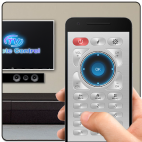Top VoIP Apps for Your Phone
- 2019-04-18 17:30
- 1584

When did you make a regular phone call last? Suddenly I discovered that I make phone calls once a week, or even more seldom. It doesn’t appear that clear, because call log on my iPhone shows all the calls I make, no matter what app I use for it. I really had to do some scrolling to find a regular call, and that inspired me to write this.
There are more and more apps that can replace regular voice calls now, with more features and for a smaller price. Mobile carriers become more of Internet providers these days, so they remain in the game, but they cannot provide that sort of voice communication we want now.
No matter if you use an iPhone or Android phone; all these apps are available for both.
Skype

Still number one! The default VoIP service for many businesses and old school users, now owned and conducted by Microsoft, turns out hard to kill. It offers messages, voice and video calls, both for private and group conversations.
Despite WhatsApp or Telegram success, Skype is still better optimized for desktop platforms, and I see it on my phone as an extension of a desktop app, but a very useful one. By the way, it’s the only app I enjoy on my tablet more than on my phone, especially when it comes to group chats.
As for me, my Office365 account provides me with a good bonus of 60 minutes for calling cellular or landline phones. It’s especially useful when abroad. Another great bonus from this subscription is large files, sometimes of many gigabytes, that I can attach to my Skype messages with OneDrive. But if you don’t use Office365 that enhances the experience, you probably won’t put Skype first in your rating.
Viber

While Skype is great for doing business, Viber is the champion when it comes to informal conversations. When I send a fresh snap to my mom or talk emotionally to friends, Viber is much better. It may seem too giddy, but it’s all about stickers and emoticons Viber is so rich it.
Truly, that’s the reason while I prefer it to WhatsApp, with basically the same features. Both services allow for messaging, voice and video calling, group chats, and stuff. Both are attached to your phone number, and both generate the phonebook upon your default one. But Viber has it way airier, nah mean? The right sticker says much more. I may change my mind after digging Bitmoji a bit deeper, but my family and friends are already on Viber, hehe.
Nextiva

It’s another business-oriented tool, especially popular in young businesses that don’t accept Skype as the corporate default. Unlike Skype, meant for unlimited access, Nextiva is rather a service for internal corporate affairs. It’s, in fact, an extended office commutator, making staff available everywhere with VoIP technologies.
So far it supports voice calls, emails and chats, and it’s a sufficient set for office needs. Later the developers will add SMS integration (in case some user is offline) and social media integration.
Nimbuzz

Back in the days when I was little and my Windows Mobile communicator was big but weak, Nimbuzz was the app to use all messengers, like MSN, ICQ, Google Talk, and Facebook. But as time went by, it became a service of its own, now closest to WhatsApp or Viber. It’s utilizing your phone number and phone book too, and offers a similar range of services, like video and audio calls, texting, and metadata.
The advantage of Nimbuzz is its clients made for any possible platform, including major and minor ones. They still keep their apps for Windows Phone, BlackBerry and Symbian, and even support it for Kindle! It’s really ubiquitous, so I use it to communicate with some older friends or colleagues who don’t like changing devices yearly. Even those on dated Lumia’s and Blackberry’s are available with Nimbuzz.
Whistle

The best about this app is its being able to replace a conventional phone, with texting and calling out. It provides a phone number you can use both for making and receiving calls, as well as for texting. It’s a great thing when you need a regular number instead of all those messengers; the one they can call from cellular or landline, and the one that can be printed on your card.
Of course, it’s paid, just like any phone service. But it’s much more convenient, being available for all major mobile and desktop platforms (though not covering as many as Numbuzz).
The thing is that none of these VoIP apps can fully replace others; each has its unique features, so I select all of them. And you?





Leave a comment
Your comment is awaiting moderation. We save your draft here
0 Comments